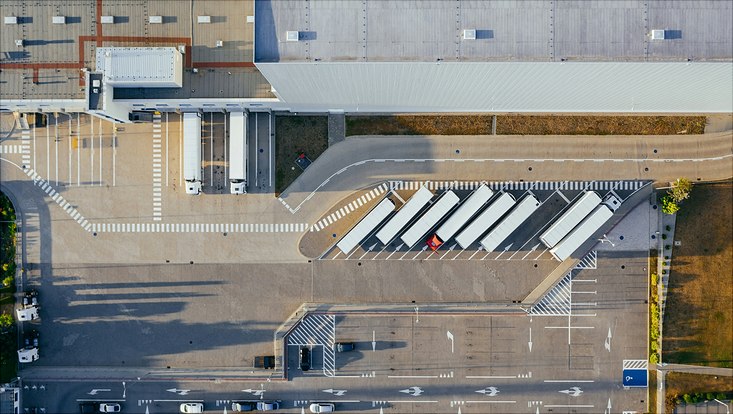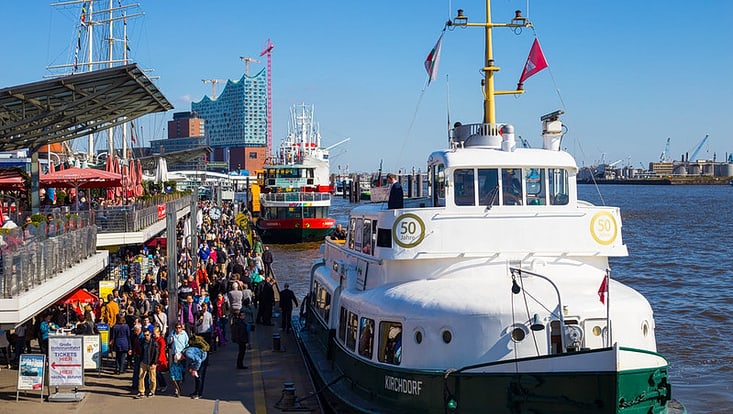Systems
Glasshouse Project launched
27 May 2024, by Kai Brüssau

Photo: Marcin Jozwiak (Unsplash)
Dr. Kai Brüssau and Dr. Robert Stahlbock from the Institute of Information Systems are working on a project funded by the Hamburgische Investitions- und Förderbank (IFB), which deals with a feasibility study on an AI-supported booking platform for the Port of Hamburg.
A consortium from industry and research has been formed to carry out this study. The consortium includes the Research and Technology Transfer Center of the University of Hamburg (HITeC), the forwarding agent Sitra Spedition and the Institute of Maritime Logistics (MLS) at the TUHH. The project team thus combines comprehensive practical and scientific expertise in the fields of artificial intelligence and data mining, planning and optimization as well as business process and information management.
With a container handling volume of 7.7 million TEU in 2023, the Port of Hamburg is the largest seaport in Germany. In order to reconcile economic efficiency with ecological goals in the future, the City of Hamburg aims at making the port climate-neutral by 2040. The challenge of reducing emissions includes the dire traffic situation in and around the Port of Hamburg and the sometimes long waiting times at the packing plants. These plants are responsible for distributing freight to individual trucks in case the containers are not shipped as a whole. Soemtinges for one truck journey to or from the hinterland, the trucks have to head for several packing plants. From an IT-based perspective, there are considerable weaknesses in the current information flow. Improving this flow through digitalization and thus creating opportunities for digital transformation, for example to reduce waiting times at the packing plants and improve route planning is the main goal.
The project will examine what data is available in the system, in what form and how it can be bundled so that all stakeholders can derive added value from it. Better access to information, for example about the arrival time of trucks, means that capacities at the packing plants can be planned in more detail and emissions caused by waiting trucks can be reduced. Merging the relevant information also ensures that haulage companies and freight forwarders can ameliorate their tour planning. In order to achieve these goals, data mining is used to aid in making predictions, which are then incorporated into truck route planning. The combination of machine learning and optimization thus represents an innovative technology. Its results will be evaluated on the basis of the study.
Thanks to the results of the feasibility study a concept for a platform (called Glasshouse) will be developed that increases overall transparency, integrates stakeholders and improves the flow of information. A successful implementation could make the Port of Hamburg a more attractive location for handling freight and contribute to the reduction of emissions through the more efficient use of trucks and other resources.


